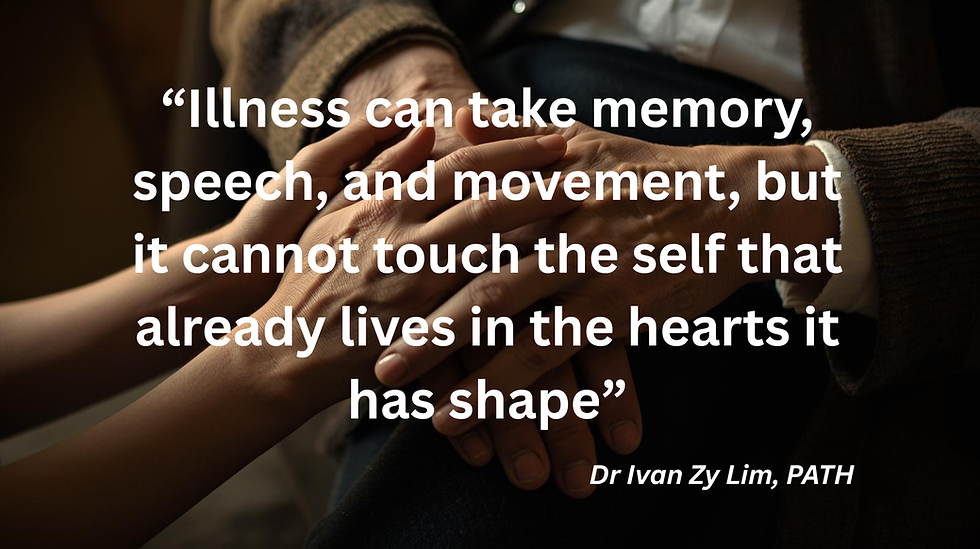The Compassion of Christ – Rediscovering Empathy Through a Christian Lens
- Ivan Lim
- Aug 5, 2025
- 3 min read

By Dr. Ivan Zy Lim, Clinical Psychologist, Transcultural Psychotherapist Specialist, PATH Trauma Consultant & Founder, Inner Quest Centre
In Part 1, we explored the cultural roots of empathy through Confucianism, Daoism, and Buddhism. In Part 2, we stepped into the real-world work of Safety Ambassadors, those who carry empathy into crisis moments, anchoring others with presence and care. Now, I want to offer a third lens that has quietly, steadily shaped my life and work: the way of Christ.
What does empathy look like when viewed through the life, words, and actions of Jesus? It becomes more than presence. It becomes incarnation. It becomes more than emotion. It becomes love in action.
This is not just a theological idea. It’s a transformative posture that shapes how we sit with suffering, whether we are therapists, care providers, or simply human beings.
Empathy Begins with Presence
Scripture tells us:
“The Word became flesh and made His dwelling among us.” (John 1:14)
Jesus did not love from a distance. He entered the pain of humanity. He touched the untouchable. He wept beside the grieving. He stopped for the overlooked.
In trauma-informed care, we talk about attunement. In Christian language, this is incarnation. To draw near, not just with sympathy, but with skin. With spirit. With willingness to stay.
This is the kind of empathy I see echoed when an Ambassador pauses to say:
“I’m here with you. We can take this slowly.”
The Tears of Christ
There’s a moment in John 11 where Jesus arrives at the tomb of Lazarus. He knows resurrection is coming. But still, when He sees Mary and the others weeping, He doesn’t skip to the miracle.
“Jesus wept.” (John 11:35)
That is Christian empathy: not rushing to resolution. Not bypassing grief. But joining it. Letting our hearts break open for the pain of another.
And it’s this depth of presence that makes restoration possible.
Compassion That Moves
In the Gospels, the Greek word for compassion is often splagchnizomai—a deep, gut-level ache that leads to action.
“When he saw the crowds, he had compassion on them, because they were harassed and helpless.” (Matthew 9:36)
This is not passive empathy. It is engagement. Christ’s compassion heals, feeds, touches, restores. He doesn’t just feel. He responds.
Likewise, the Safety Ambassadors I coach are often moved, not just emotionally, but practically. They respond with offers of help, with permission to pause, with small actions that feel like grace.
Christian Empathy in Practice
Here are practices I offer to therapists, leaders, and care teams seeking to embody the empathy of Christ:
Pause Before Presence
Before speaking, breathe. Ask, Lord, what is needed here, my words or just my presence?
Name the Beloved
Jesus restored identity with words like “daughter,” “beloved,” “friend.” Practice naming what is true and dignifying in others, especially in moments of shame or pain.
Small Acts of Grace
From washing feet to sharing meals, Jesus showed empathy through humble action. Look for opportunities to serve quietly, without spotlight, but with love.
Listen with the Spirit
Go beyond listening with your ears. Ask for discernment. Pray silently as you listen: Let me hear what this person cannot say.
Be Willing to Stay
Empathy is not about solving quickly. It’s about abiding. Jesus stayed in the garden. He stayed on the road. He stays with us. Can we stay with others in their pain?





Comments